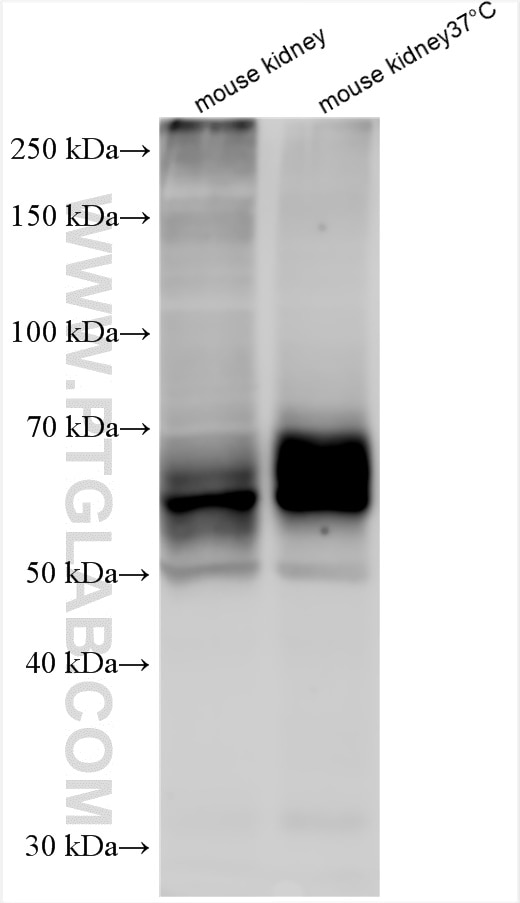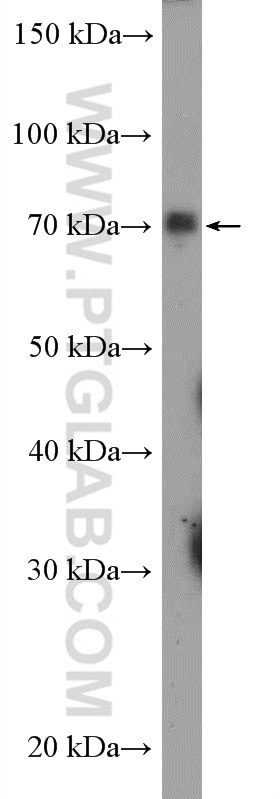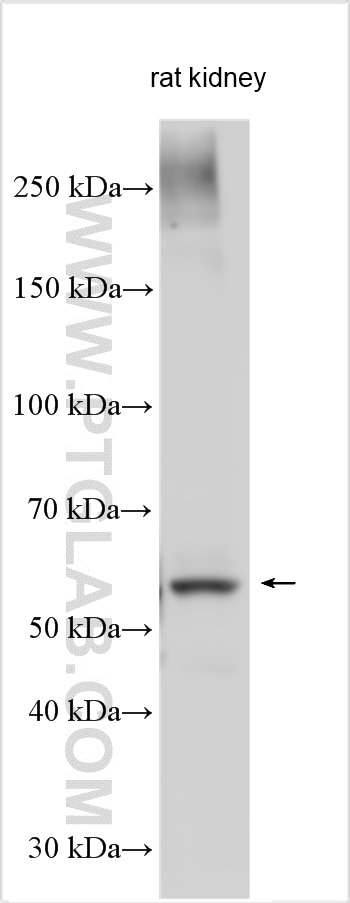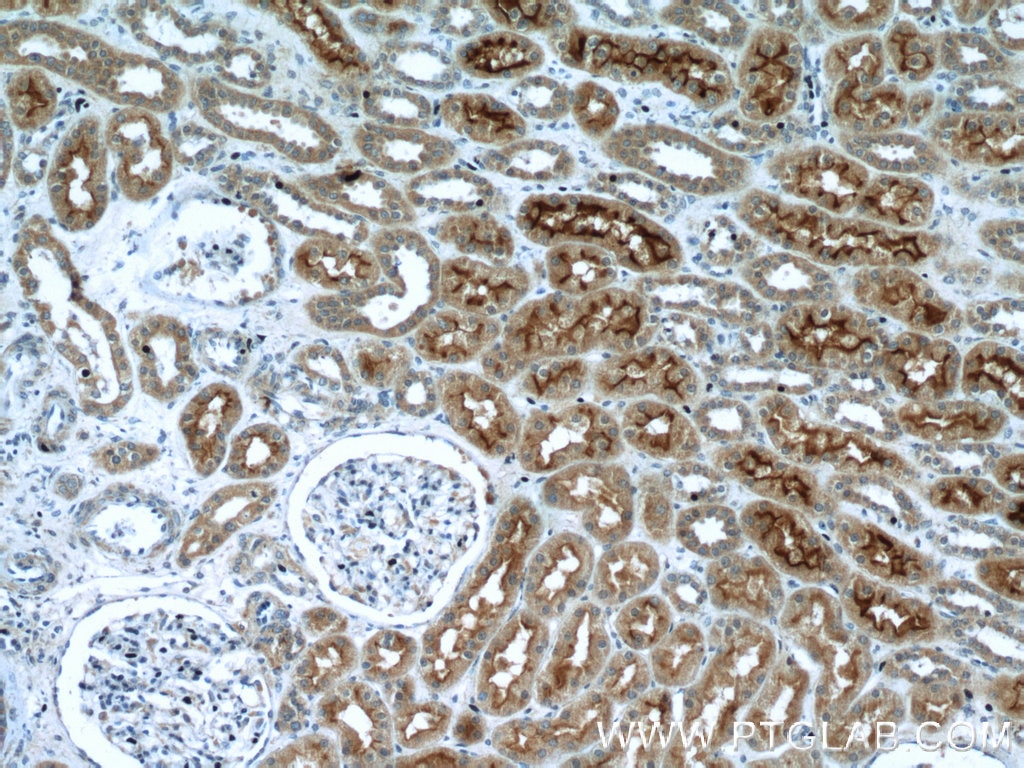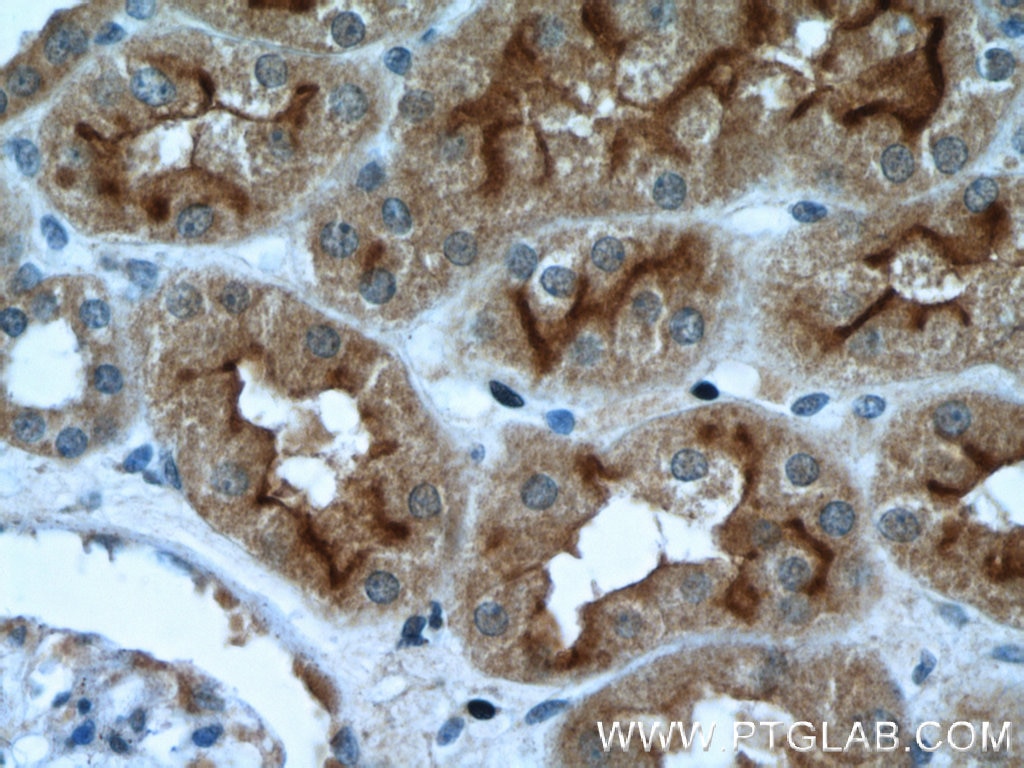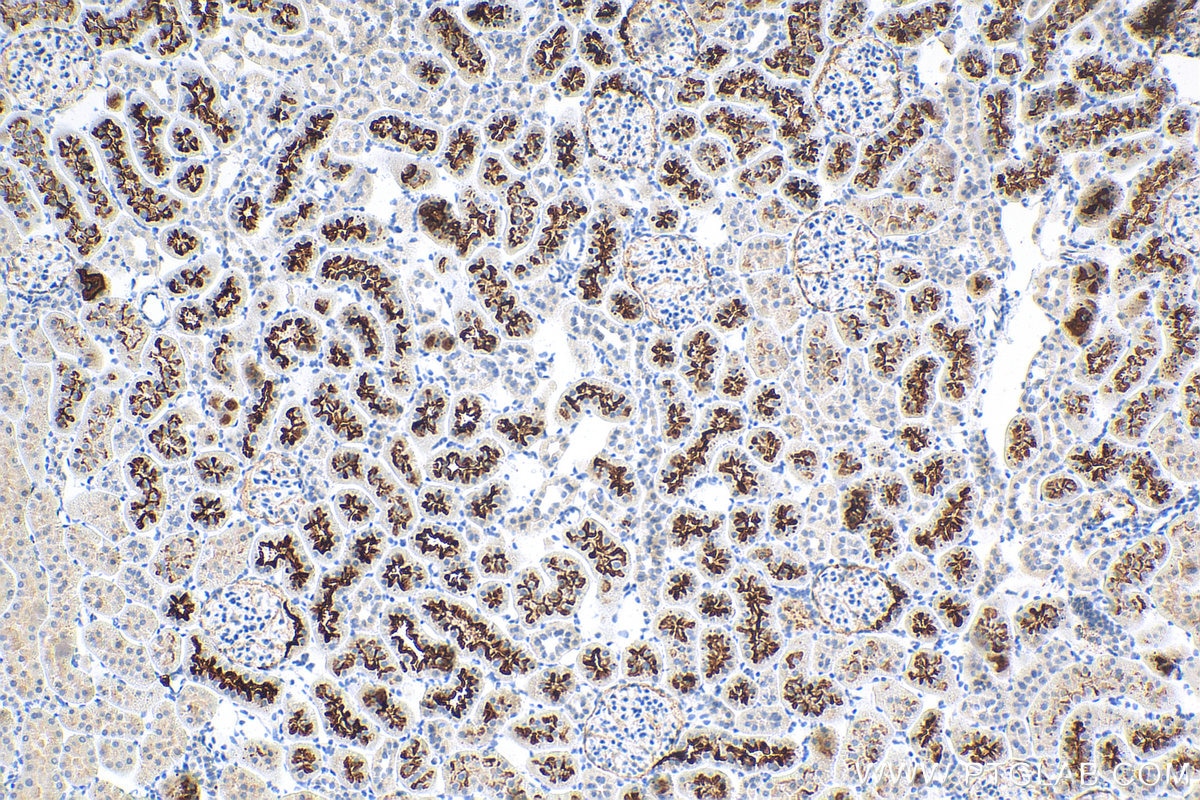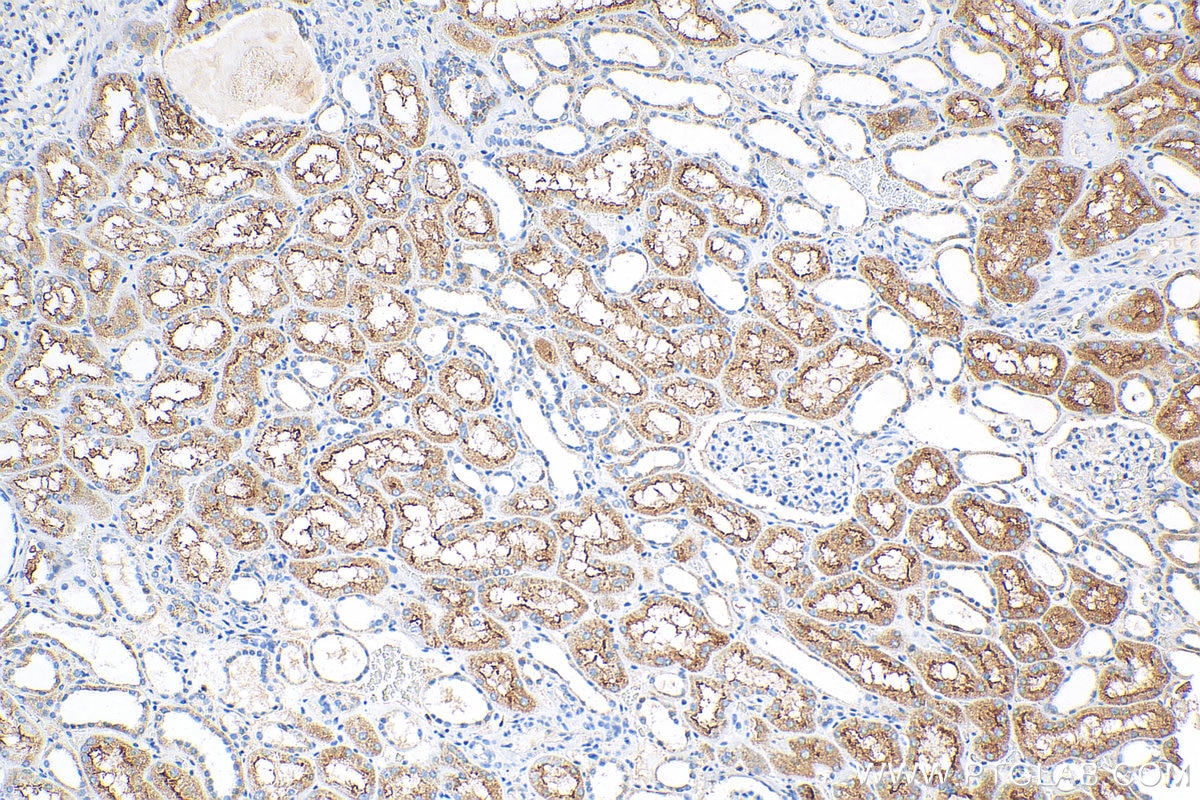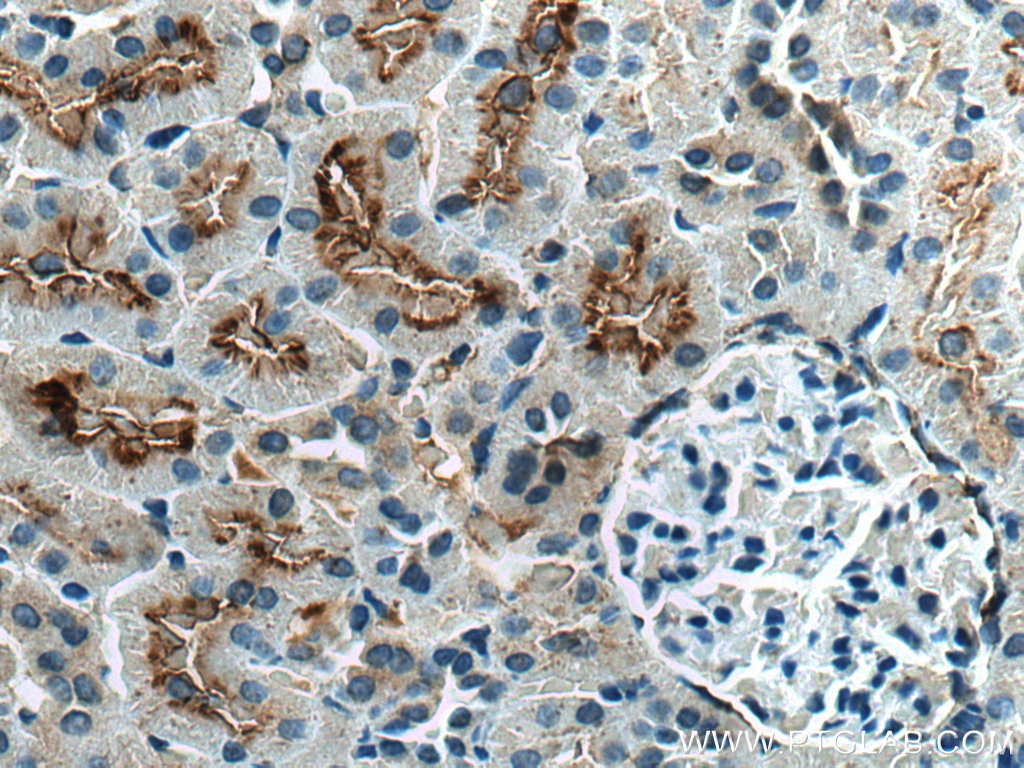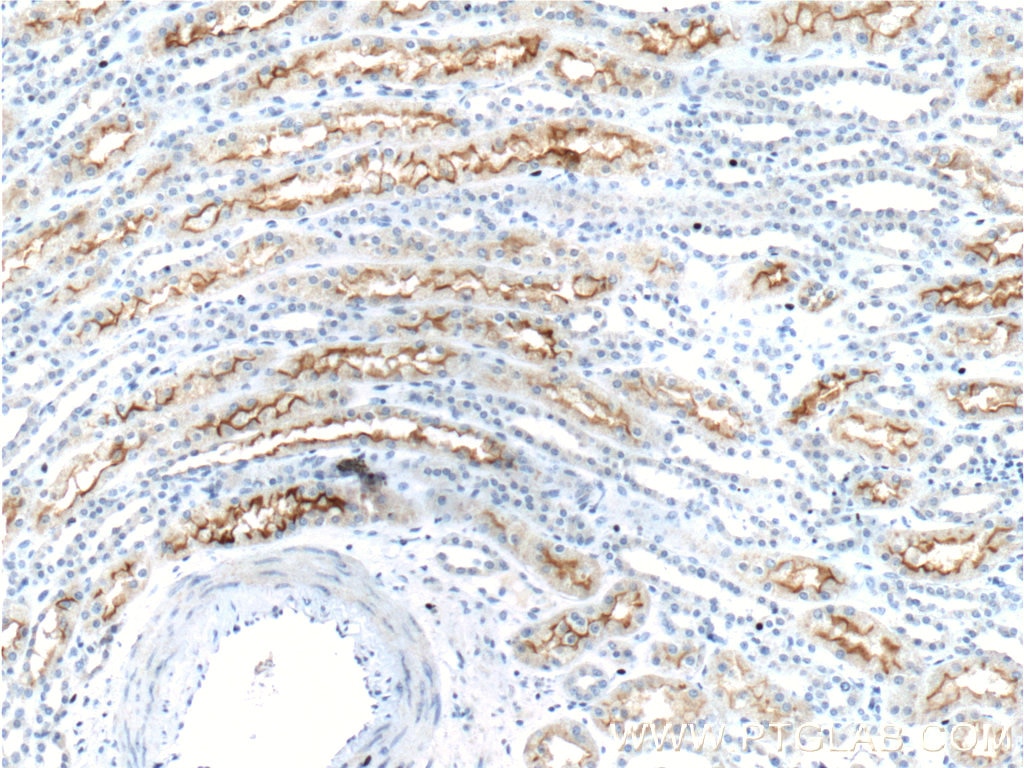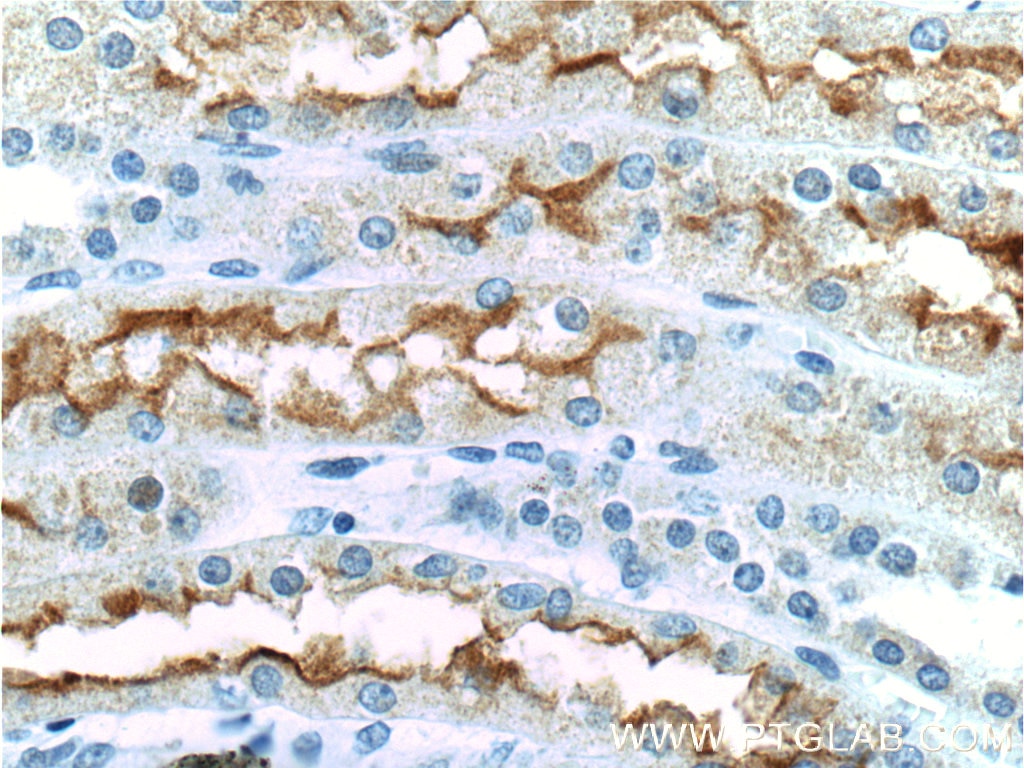- Featured Product
- KD/KO Validated
SGLT2 Polyklonaler Antikörper
SGLT2 Polyklonal Antikörper für IHC, WB, ELISA
Wirt / Isotyp
Kaninchen / IgG
Getestete Reaktivität
human, Maus, Ratte
Anwendung
WB, IP, IHC, IF, ELISA
Konjugation
Unkonjugiert
Kat-Nr. : 24654-1-AP
Synonyme
Galerie der Validierungsdaten
Geprüfte Anwendungen
| Erfolgreiche Detektion in WB | Mausnierengewebe, A549-Zellen, Rattennierengewebe |
| Erfolgreiche Detektion in IHC | humanes Nierengewebe, Rattennierengewebe Hinweis: Antigendemaskierung mit TE-Puffer pH 9,0 empfohlen. (*) Wahlweise kann die Antigendemaskierung auch mit Citratpuffer pH 6,0 erfolgen. |
Empfohlene Verdünnung
| Anwendung | Verdünnung |
|---|---|
| Western Blot (WB) | WB : 1:500-1:3000 |
| Immunhistochemie (IHC) | IHC : 1:200-1:800 |
| It is recommended that this reagent should be titrated in each testing system to obtain optimal results. | |
| Sample-dependent, check data in validation data gallery | |
Veröffentlichte Anwendungen
| KD/KO | See 3 publications below |
| WB | See 16 publications below |
| IHC | See 13 publications below |
| IF | See 9 publications below |
| IP | See 1 publications below |
Produktinformation
24654-1-AP bindet in WB, IP, IHC, IF, ELISA SGLT2 und zeigt Reaktivität mit human, Maus, Ratten
| Getestete Reaktivität | human, Maus, Ratte |
| In Publikationen genannte Reaktivität | human, Maus, Ratte |
| Wirt / Isotyp | Kaninchen / IgG |
| Klonalität | Polyklonal |
| Typ | Antikörper |
| Immunogen | SGLT2 fusion protein Ag19163 |
| Vollständiger Name | solute carrier family 5 (sodium/glucose cotransporter), member 2 |
| Berechnetes Molekulargewicht | 672 aa, 73 kDa |
| Beobachtetes Molekulargewicht | 69-70 kDa |
| GenBank-Zugangsnummer | BC131542 |
| Gene symbol | SLC5A2 |
| Gene ID (NCBI) | 6524 |
| Konjugation | Unkonjugiert |
| Form | Liquid |
| Reinigungsmethode | Antigen-Affinitätsreinigung |
| Lagerungspuffer | PBS mit 0.02% Natriumazid und 50% Glycerin pH 7.3. |
| Lagerungsbedingungen | Bei -20°C lagern. Nach dem Versand ein Jahr lang stabil Aliquotieren ist bei -20oC Lagerung nicht notwendig. 20ul Größen enthalten 0,1% BSA. |
Hintergrundinformationen
Sodium-glucose cotransporter 2 (SGLT2), encoded by SLC5A2, utilizes the electrochemical sodium gradient to transport glucose against the cell's internal concentration gradient. Mainly expressed on brush border membrane (BBM) of epithelial cells in the early segment of the proximal tubule, SGLT2 mediates most of the glucose reabsorption by the kidney overall. Inhibition of SGLT2 could improve glucose homeostasis of diabetic patients, which has been considered as a novel strategy for diabetes treatment.
Protokolle
| Produktspezifische Protokolle | |
|---|---|
| WB protocol for SGLT2 antibody 24654-1-AP | Protokoll herunterladen |
| IHC protocol for SGLT2 antibody 24654-1-AP | Protokoll herunterladen |
| Standard-Protokolle | |
|---|---|
| Klicken Sie hier, um unsere Standardprotokolle anzuzeigen |
Publikationen
| Species | Application | Title |
|---|---|---|
Circulation Sodium Glucose Cotransporter-2 Inhibitor Empagliflozin Reduces Infarct Size Independently of Sodium Glucose Cotransporter-2 | ||
Cancer Lett SGLT2 promotes pancreatic cancer progression by activating the Hippo signaling pathway via the hnRNPK-YAP1 axis. | ||
Mol Metab Sodium-glucose co-transporter2 expression and inflammatory activity in diabetic atherosclerotic plaques: Effects of sodium-glucose co-transporter2 inhibitor treatment.
| ||
Int J Mol Sci Redefining the Role of ADAM17 in Renal Proximal Tubular Cells and Its Implications in an Obese Mouse Model of Pre-Diabetes. | ||
Metabolism Sodium-glucose cotransporter 2 inhibition attenuates protein overload in renal proximal tubule via suppression of megalin O-GlcNacylation in progressive diabetic nephropathy. | ||
Front Pharmacol Empagliflozin Alleviates Hepatic Steatosis by Activating the AMPK-TET2-Autophagy Pathway in vivo and in vitro. |
Rezensionen
The reviews below have been submitted by verified Proteintech customers who received an incentive forproviding their feedback.
FH Elina (Verified Customer) (03-04-2019) | The antibody is quite specific, used at a 1:200 dilution in mouse kidney. Comparison to a secondary only staining shows some background. Overall it appears to work well in paraffin embedded tissues, (5um thick).
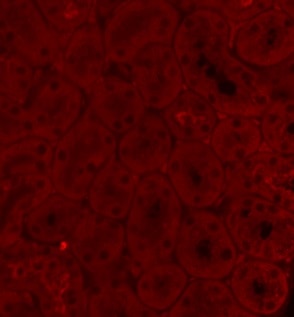 |
